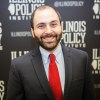Chicago City Council aims to crowd ballot with needless referendums
City Council violates procedural rules and plays political games to put popular, but toothless, measures on the ballot and protect the mayor and bureaucrats from any real challenges to their power.
When election time rolls around, the Chicago City Council does all it can to crowd the ballot with “feel good” referendums meant to increase voter turn out or protect elected officials. Because only three referendums are allowed per municipality under Illinois law, the proliferation of “feel good” propositions with no power to affect actual policy blocks legitimate reform efforts. The lead-up to the 2016 general election is no different.
In June, the council approved two ballot spots, both of which touch on hot-button issues in the news: “Should the State of Illinois strengthen penalties for the illegal trafficking of firearms and require background checks for gun dealers and their employees?” and “Should the State of Illinois provide full and equitable funding for Chicago Public Schools?”
Since then, aldermen loyal to Mayor Rahm Emanuel have been scrambling to fill the third spot to prevent a real referendum from appearing before the electorate. Options from Alderman Danny Solis, 25th Ward, and Alderman Joe Moore, 49th Ward, were tabled after interest groups pulled their support. The mayor worked with Alderman Walter Burnett, 27th Ward, to develop a substitute for the committee’s consideration. That substitute read, “Should the City of Chicago work with the federal government and the state to prioritize significant new investments in important infrastructure like roads, bridges, public transportation, river and lakefront redevelopment and additional green space?”
It was expected that, at the July 11 meeting of the Committee on Committees, Rules and Ethics, aldermen would continue the usual practice of working with the mayor to crowd the ballot and approve Burnett’s referendum. However, Chair Michelle Harris, 8th Ward, initiated a roll call vote that ended in a 7-7 tie. Harris immediately recessed the meeting until just before the full city council meeting July 22.
Under the council rules of order, a mechanism to break a tie vote does not exist. However, pursuant to Rule 47, in all instances where a Chicago rule has not been adopted, Robert’s Rules of Order shall take precedence. Those rules state, “On a tie vote the motion is lost, and the chair, if a member of the assembly, may vote to make it a tie … The chair cannot, however, vote twice, first to make a tie and then give the casting vote.”
The council is up against the clock, as all referendums need to be passed by the body and submitted by Aug. 22. This would mean Burnett’s failed resolution would need to be reintroduced in committee to be considered on July 22, the last scheduled city council meeting before the August recess.
Interestingly, another procedural irregularity occurred in this case because no quorum existed when the vote was called on the infrastructure proposal. The Committee on Committees, Rules and Ethics is composed of all 50 aldermen. In order to proceed with any business, the committee needs to have a quorum, or 26 members, present. At the time of the vote July 11, only 14 members were present, well short of a quorum. Had anyone challenged the vote, it could have been invalidated due to this rules violation.
The mayor, with the help of City Council, has gone to all of this effort to prevent a legitimate referendum regarding the implementation of an independent airport authority to oversee O’Hare and Midway airports – similar to those in New York, Atlanta, Boston and Washington, D.C. In fact either an elected authority or a board appointed by both the mayor and governor run every major airport in the United States. Chicago is the only city to retain all of the power for the mayor. Given the numerous scandals involving Chicago’s airports, such as Tony Rezko’s ill- obtained minority-run designation and United Maintenance’s alleged mob connections, it’s clear why some aldermen are seeking to put the matter before the public. Still, they’ll be hard pressed to find success since the mayor opposes any plans to take power out of his hands.
By calling for a vote in the absence of a quorum, and conveniently crowding out legitimate legislation-related measures with feel-good referendums, the mayor and City Council continue to play fast and loose with the rules to retain their power over the electorate. Ironically, Harris has said these referendums are put on the ballot “so the public has some kind of input into the process.”
Contact your alderman today and let him or her know you support legitimate referendum being placed on the ballot in November.
